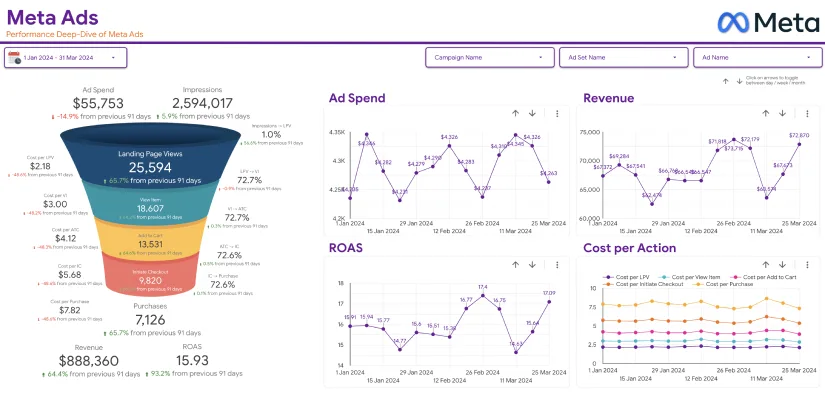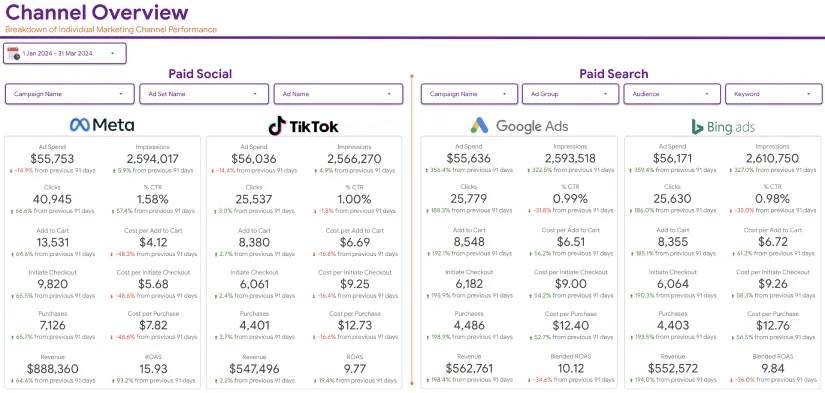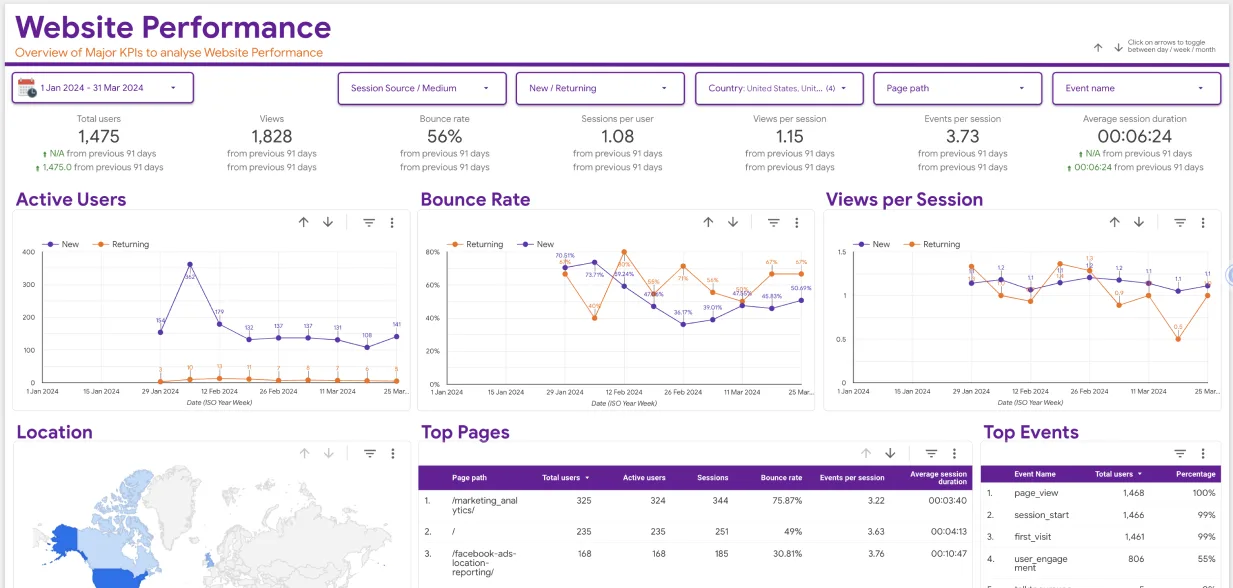In today’s data-driven world, data governance has never been more crucial. For any business that leverages data analytics to fuel growth, it is paramount to ensure that data practices align with legal, security, and regulatory requirements. This is where the expertise of a data analytics agency comes into play. By establishing robust data governance frameworks, businesses safeguard their information and ensure that their analytics strategies comply with various laws and industry standards.
In this comprehensive guide, we’ll explore the significance of data governance, explain why security and compliance are vital components, and outline how a data analytics agency like Eaglytics can help businesses achieve an efficient and legally sound governance strategy.
What is Data Governance?
Data governance refers to the overall management of data availability, usability, integrity, and security within an organization. It involves policies, procedures, and controls that ensure data is handled consistently and responsibly throughout its lifecycle.
The fundamental aim of data governance is to guarantee that data is accurate, reliable, and compliant with legal standards. Effective data governance doesn’t just focus on the present use of data but also anticipates how data will be used in the future, ensuring that businesses can scale their operations without running into regulatory or security issues.

Why Data Governance Matters in Analytics
Data analytics offers businesses immense value, from uncovering consumer trends to optimizing internal processes. However, as companies increasingly rely on data to drive decision-making, they also open themselves up to significant risks if their data needs to be managed properly. This is why data governance plays a pivotal role in any analytics strategy.
- Accuracy and Reliability: Data governance ensures that the data fed into analytics models is accurate, up-to-date, and complete. These measures are necessary for businesses to make critical decisions based on flawed or incomplete data.
- Security: As businesses amass more data, the potential for breaches, hacks, and internal misuse grows. Robust data governance systems set protocols for who can access specific data, how it is encrypted, and how it’s stored securely.
- Compliance: Data-related laws and regulations, such as GDPR in Europe and CCPA in California, require businesses to meet specific standards when handling sensitive data. Failing to comply can result in hefty fines and loss of consumer trust.
- Operational Efficiency: With well-defined data governance, businesses can streamline data management, making it easier for teams to access, share, and use data effectively.
The Role of Security in Data Governance

With data breaches becoming increasingly common, security has emerged as one of the most critical components of a data governance strategy. By 2023, the average data breach cost hit $4.45 million, a staggering figure that underscores the need for security-first approaches.
1. Data Access Control
A key security element in data governance is controlling who has access to data. Without strict policies governing access, the risk of internal and external breaches skyrockets. Access control policies should be based on the principle of least privilege, meaning employees and systems should only have access to the data they need to perform their specific tasks.
A data analytics agency like Eaglytics can help businesses implement advanced access control systems. These may involve multi-factor authentication (MFA), role-based access control (RBAC), and real-time monitoring to prevent unauthorized access.
2. Data Encryption
Encrypting data at rest and in transit is another crucial component of any data governance strategy. Encryption ensures that even if data is intercepted or accessed unlawfully, it cannot be read or misused without the corresponding decryption key. A strong data encryption policy ensures that sensitive data, such as customer information and proprietary business insights, is securely encrypted across all platforms.
3. Incident Response and Disaster Recovery
Security plans are not foolproof, so having a solid incident response and disaster recovery plan is essential. Data governance frameworks should outline clear protocols for responding to data breaches or other security incidents. A swift and comprehensive response can mitigate damage and prevent a security event from escalating into a full-scale crisis.Eaglytics assists businesses in establishing incident response teams and recovery strategies to restore operations quickly, minimize downtime, and protect business continuity.
Compliance: Staying Ahead of Legal and Regulatory Requirements
Data compliance is closely related to governance and security. As businesses collect, store, and analyze more data, they must ensure their practices comply with global data protection laws and industry-specific regulations.
1. General Data Protection Regulation (GDPR)
The GDPR sets strict standards for how businesses handle the personal data of individuals within the European Union. These rules include gaining explicit consent for data collection, enabling individuals to request data deletion, and notifying authorities in case of a breach. Even businesses outside of Europe must comply with GDPR if they interact with EU residents.
2. California Consumer Privacy Act (CCPA)
Like the GDPR, the CCPA governs how businesses handle the personal data of California residents. CCPA requires companies to disclose what data is being collected, allow consumers to opt out of data collection, and offer the right to request deletion of their data.
3. Industry-Specific Regulations
Depending on the industry, businesses may also need to comply with additional data regulations. For example, the healthcare sector in the U.S. is governed by HIPAA, which enforces strict rules for handling patient data. Financial institutions, meanwhile, must follow regulations like SOX and GLBA.
Ensuring compliance can be complex and time-consuming, which is where a data analyticsagency like Eaglytics steps in. By continuously monitoring regulatory changes and adjusting data practices accordingly, businesses can avoid hefty fines and ensure their data governance framework is up to date.
How a Data Analytics Agency Can Ensure Security and Compliance

A data analytics agency brings specialized expertise in helping businesses establish and maintain robust data governance strategies. Here are some key ways agencies like Eaglytics support businesses in this realm:
1. Audit and Assess Data Practices
The first step in ensuring effective data governance is understanding where the business currently stands. A data analytics agency will comprehensively audit data practices, identifying potential vulnerabilities and inefficiencies. This audit forms the foundation for a tailored governance strategy.
2. Develop and Implement Governance Policies
Once the audit is complete, the agency works with the business to develop governance policies that cover data access, usage, security, and compliance. These policies should be clear, easy to follow, and adaptable as the company grows.
3. Training and Awareness Programs
Human error is often a weak link in data governance. A data analytics agency can conduct training sessions to ensure that employees understand the importance of data governance and follow best practices for data handling.
4. Continuous Monitoring and Optimization
Data governance is not a set-it-and-forget-it process. A good data analytics agency continuously monitors data practices, security incidents, and regulatory changes, making adjustments to keep the governance strategy effective.
5. Ensuring Legal Compliance
One of the most critical roles of a data analytics agency is ensuring that all data practices comply with local and international regulations. Agencies stay on top of the ever-changing legal landscape to provide businesses with peace of mind that their data is being handled responsibly.
Conclusion: Building a Secure and Compliant Analytics Strategy with Eaglytics
In the data-driven decision-making age, data governance’s importance cannot be overstated. By ensuring that data is handled securely and in compliance with legal standards, businesses can protect themselves from security breaches, avoid costly fines, and maintain the trust of their customers.
Partnering with a data analytics agency like Eaglytics gives businesses access to the expertise they need to build a governance framework that is robust and adaptable to future challenges. Whether auditing current data practices, implementing new security measures, or ensuring compliance with evolving regulations, Eaglytics helps businesses thrive in today’s competitive landscape while safeguarding their most valuable asset—data.
With a strong governance strategy, businesses can confidently move forward, knowing their data is secure, compliant, and optimized for long-term success.






